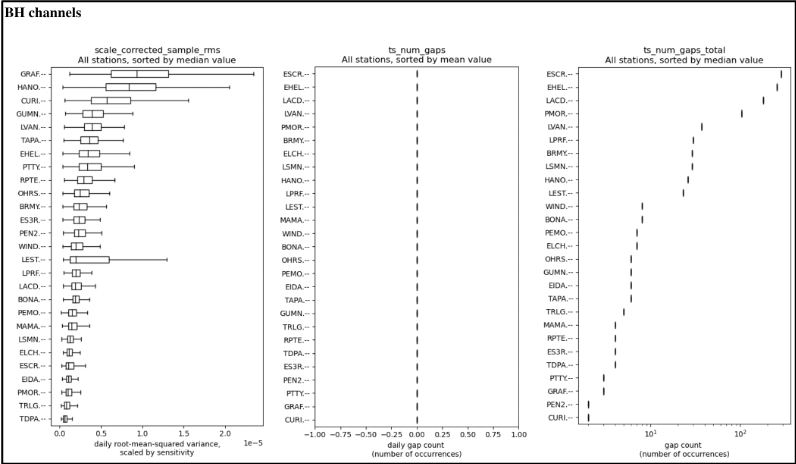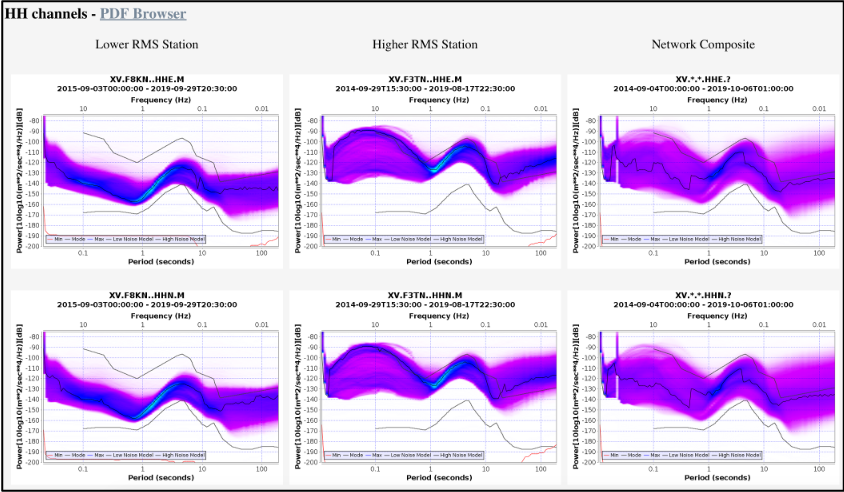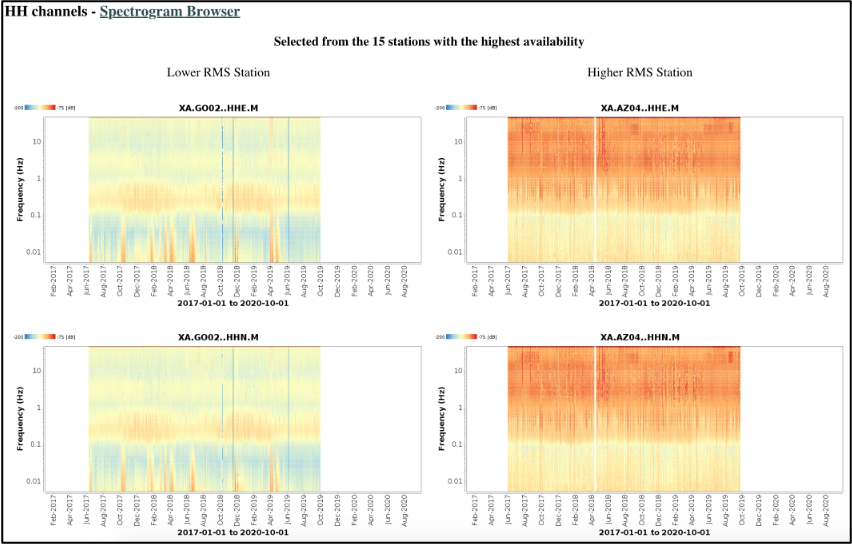IRIS Releases PIQQA, A New Software Tool for Producing Quick Data Quality Reports
 The PI’s Quick Quality Assessment (PIQQA, pronounced ‘PY-kə’ after the pika, a cute alpine mammal), developed collaboratively by IRIS Data Services and Instrumentation Services, is a new software tool for producing quick data quality reports using MUSTANG-generated metrics. The application, designed for use with PASSCAL experiments and other temporary deployments, is easy to operate and provides users with a quick snapshot of several data quality metrics for a specified network or subset of stations/channels.
The PI’s Quick Quality Assessment (PIQQA, pronounced ‘PY-kə’ after the pika, a cute alpine mammal), developed collaboratively by IRIS Data Services and Instrumentation Services, is a new software tool for producing quick data quality reports using MUSTANG-generated metrics. The application, designed for use with PASSCAL experiments and other temporary deployments, is easy to operate and provides users with a quick snapshot of several data quality metrics for a specified network or subset of stations/channels.
For several years, IRIS Data Services has been generating a wealth of data quality metrics and products using the automated system known as MUSTANG. Users can query MUSTANG to obtain these metrics directly via web services, or they can access metrics through a variety of client tools, including PIQQA.
PIQQA is an open-source application that can be applied to any dataset archived at the IRIS Data Management Center for which MUSTANG metrics have been generated. It is particularly useful for PIs who wish to obtain a quick overview of the quality of the dataset from their recent temporary/PASSCAL deployments. PIQQA does not display all MUSTANG metrics, and users interested in exploring additional metrics in greater detail are encouraged to explore additional MUSTANG clients or query MUSTANG directly via web services.
Principal Investigators wishing to use PIQQA should download the source code from the GitHub repository https://github.com/iris-edu/piqqa. Once downloaded and installed, the software runs locally to generate a pre-formatted data quality report. Internet access is required when the tool is being used so that the MUSTANG database can be queried directly. Reports can be generated in both HTML and PDF formats and contain links to additional information about the metrics themselves, as well as the particular network/stations/channels included in the report.
| Sample Metrics | ||
 |
 |
 |
| Metrics Boxplots | Probability Density Function Plots | Spectrograms |
A recent Data Services newsletter article provides an overview of PIQQA, including an example report.
If you have comments or questions about PIQQA, please contact Justin Sweet.


